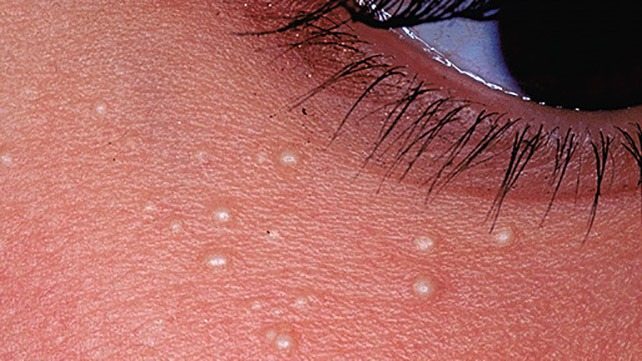Even though we might think we know a lot about the human body, there are always things that most of us without medical degrees don’t understand.
If you are concerned, it’s essential to get yourself checked out.
One of the more common things you can see on the human body is little white spots. These can easily be missed or overlooked as old spots.
What are calcium deposits?
But these small white spots have a name: calcium deposits, or ‘calcification’ if you want to sound clever.
They occur when calcium, which is found in our teeth and bones (as anyone who has ever eaten Petit Filous will know), builds up in the body.
Most of the calcium in the body is found in the complex white parts of our skeleton, but some is also found in our blood. When it travels to our organs, blood vessels, or tissue, it can cause problems.
Why do we get them?
Calcium deposits can appear anywhere on the body but are most often found on the skin or teeth. They can also be seen on the shoulders and breasts, as well as inside the body on the arteries, brain, and kidneys.
There are many possible causes of calcium deposits, and interestingly, a diet high in calcium is not considered one of them. Other causes include infections, past surgeries or cancer treatments, and simply the natural aging process.
Problems with how the body uses calcium (such as conditions that cause it to build up) and some autoimmune disorders can also lead to calcium deposits.
Are they harmful?
Some calcifications are harmless, but hardened deposits on your brain or heart can cause serious problems.
You may not experience any symptoms if they appear on your skin, except perhaps a bit of pain or itching. But if they are found in your brain, you could have problems walking and tremors, and you might also have memory loss and confusion.
How are they treated?
The treatment you need depends on the location of the calcification. You won’t need any treatment if the calcification appears on your skin and doesn’t cause any pain.
However, if they are causing problems in your shoulders, doctors will prescribe steroids. If they are found in your breasts, you might be asked to have a mammogram, as they can sometimes be a sign of breast cancer.
If they are found in your kidneys or arteries, you should modify your diet. Sadly, if they are found on your brain, there is little your healthcare provider can do other than help to manage the symptoms.

 Discuss
More news
Discuss
More news


